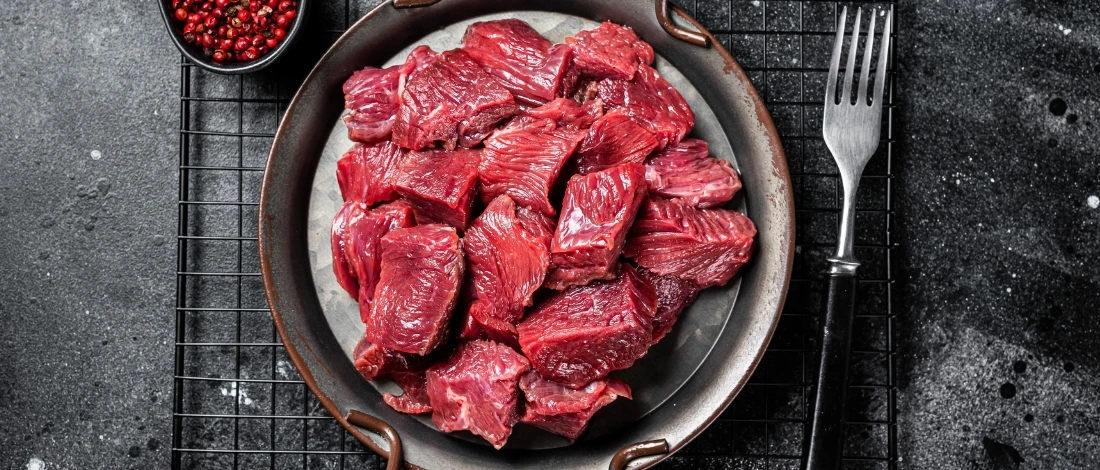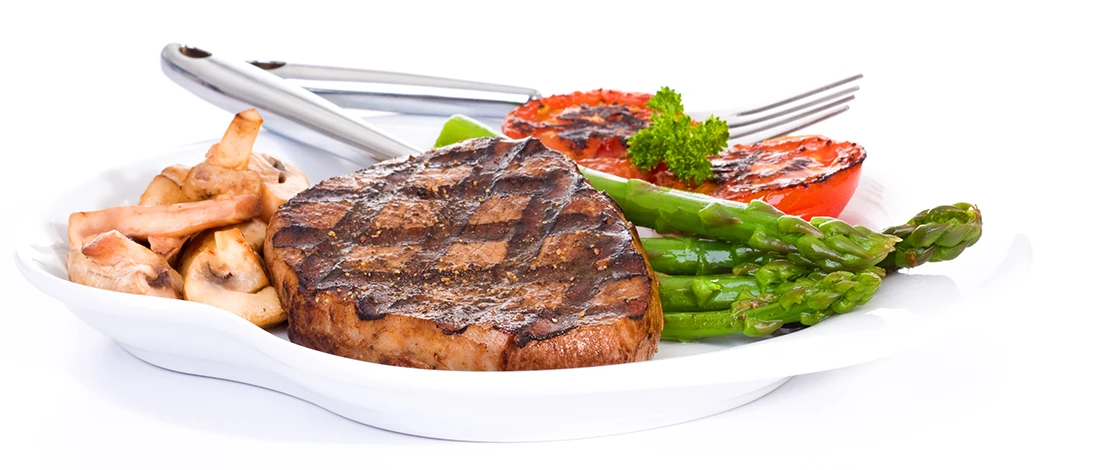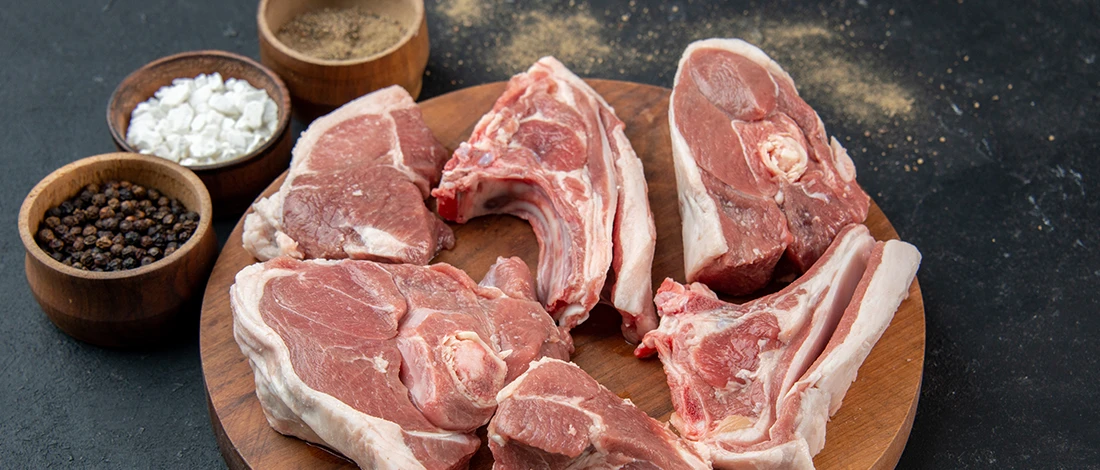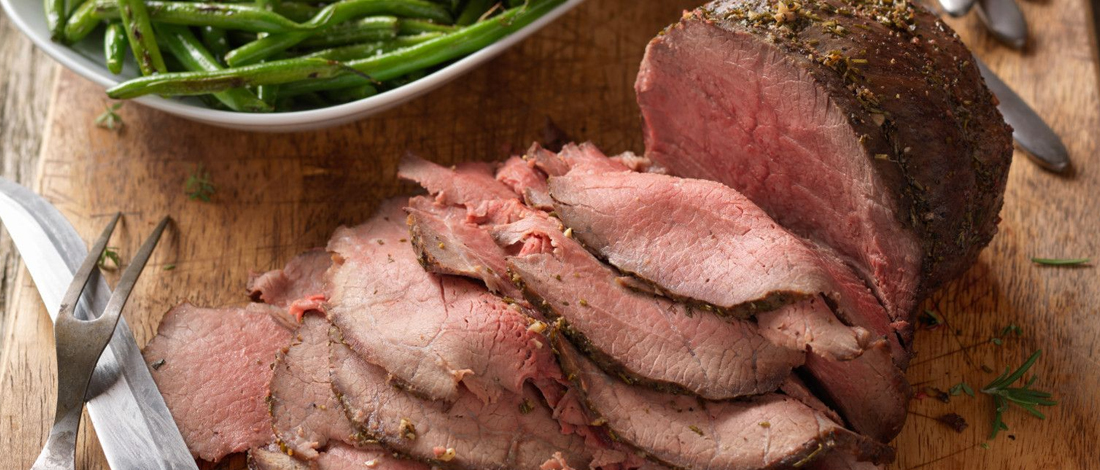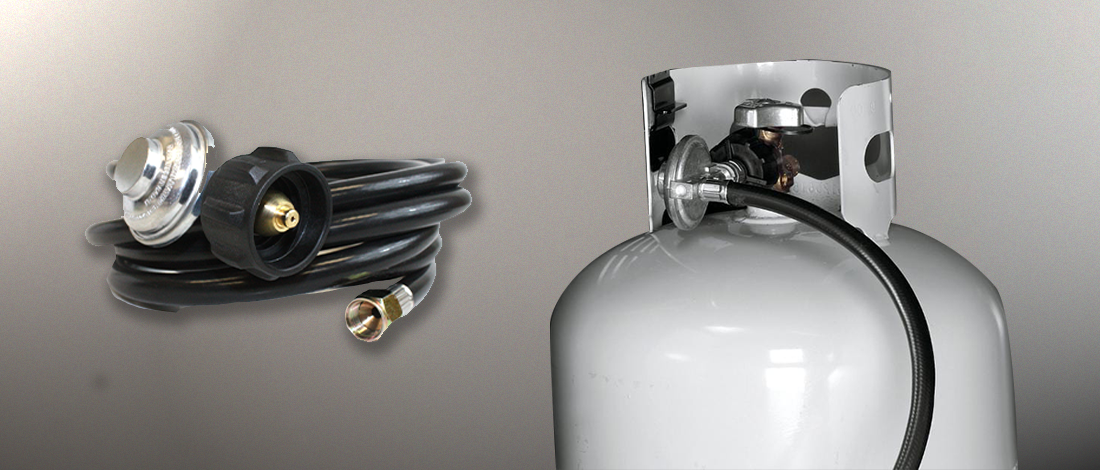I’ve been on a carnivore diet for over a decade, which means I only eat meat and animal products. I’m no stranger to meat sweats, and it took me a couple of months when I first started my carnivore journey to learn how to deal with them.
After talking it over with my family doctor and getting some advice from Carnivore Style's team, I got the medical perspective on whether meat sweats are something to worry about.
Today, I’ll explain what meat sweats are, why they happen, and how to prevent them.
Quick Summary
- Meat sweats are a condition caused by eating too much meat.
- Meat sweats feel uncomfortable and sweaty because the body needs more energy to digest protein-rich foods.
- Meat sweats can be caused by a meat allergy or intolerance.
What Are Meat Sweats?

Meat sweats are when you feel hot and sweaty after eating a lot of meat in a short period of time. Generally, meat sweats happen after a meal high in protein, such as meat, eggs, and fish.
Protein is a macronutrient. Our bodies use a lot of energy to digest macronutrients, which can lead to meat sweat.
Meat sweats are also more likely to occur if you eat protein-rich meat at night before going to sleep. The body has to work hard throughout the night to digest all the protein.
Common symptoms of meat sweats include excessive sweating, fatigue, trouble sleeping, a bloated stomach, and a stomachache.
People also feel hot, uncomfortable, and sweaty because of the thermogenic effect of protein.
Thermogenesis is the process of digesting food, especially those high in protein, which causes heat [1].
In other words, every time you eat meat, the body expends energy to break down the food you’ve consumed. This process releases heat, which increases the body temperature.
"Eating large quantities of protein increases body temperature because the body needs to work a lot harder to break it down than vegetables, fruit, fats, or grains, which may, unfortunately, lead to excess sweating."
- Verona Somarriba, MS, RDN, Clinical Nutrition Coordinator for the Division of General Surgery
The thermic effect of food can last for six hours, so you can feel the symptoms of meat sweats for a while.
Note: There’s no scientific evidence on meat sweat, and many people wonder if meat sweats are real. While there’s no official research done on the matter, there’s plenty of anecdotal evidence.
Related Articles:
Causes of Meat Sweats

Let’s take a look at what might be causing these adverse effects of meat consumption.
1. Food Allergies
If you have a food allergy, your immune system has a reaction to a protein in a specific food.
This means even a small amount of this protein can cause you to experience hives, rash, and digestive problems. This can happen when eating meat.
Some food allergies cause delayed symptoms because other parts of the immune system are involved. The most common allergies to food include shellfish, fish, cow milk, peanuts, tree nuts, and more.
As for meat food allergies, studies have found that they are rare in both adults and children. When they happen, the symptoms are similar to an allergic reaction, such as cough, vomiting, and diarrhea [2].
Kristi Winkels, registered dietitan and food allergy mom, advises people with meat-related allergies to strictly avoid it and thus prevent an allergic reaction.
This includes reading food labels carefully and watching out for cross-contact with meats while food is prepared. To ensure a balanced diet, it’s important to find safe protein sources, too.
2. Food Intolerances
Food intolerances involve the immune system, and they happen because your body lacks a certain enzyme for breaking down foods or you suffer from a leaky gut.
Kathlena, The Allergy Chef, recommends keeping a food journal as it will help determine potential triggers and eliminate them.
Once you've reached neutral and are symptom-free, try making a meal plan based on the ingredients you are still able to eat.
Food intolerances mostly cause diarrhea, gas, nausea, and, less commonly, meat sweats.
Generally, meat intolerances aren’t common. However, high-protein diets, which involve eating meat in high amounts, can lead to intolerances and meat sweats.
For those who have intolerance to meat, better ask your GP to confirm that it is not alpha-gal, an allergy to red meat.
From there, experiment with eating fish and shellfish and create a range of recipes with them, Kathlena advised.
3. Frey Syndrome
Frey syndrome is a condition that involves nerve damage. It’s usually caused by surgery near the parotid glands [3]. These are the largest salivary glands located in front of the ears on the sides of the face.
This condition can cause sweating after ingesting certain foods, such as meat.
4. Other Causes of Meat Sweats
There are several other causes of meat sweats:
- Eating a lot of meat and other high-protein foods in one day, especially with other warming foods such as spices and alcohol. Spices such as chili, peppers, and cayenne can make you feel warmer than usual.
- Eating processed meat can worsen digestive symptoms and cause meat sweats, especially if you’re sensitive to nitrates, sodium, and preservatives.
- Eating a larger-than-normal meal. Our metabolism increases by 25% after a regular meal [4]. Eating a larger meal results in a higher increase in metabolism rate, which causes meat sweats.
- Frequency. The less often you eat protein in large doses, the higher the chance of meat sweats. This depends on your body weight, eating habits, and general health.
Preventing Meat Sweats

Over the years, the Carnivore Styles team has used several ways to prevent meat sweats. Here are a few top ways that you can follow:
- Don’t eat too much meat — More meat means the body needs more energy, which in turn raises your body temperature. Be careful how much meat you eat. You should lower your meat intake or limit the meat consumption to 8 oz or less per meal. Also, eat vegetables, whole grains, and healthy fats to feel full.
- Don’t eat too often — Give your body time to digest your food before having another meal. Ideally, you should wait two to three hours before eating meat, especially if you had a high-protein meal.
- Don’t drink alcohol — If you’re eating a lot of meat, drink water instead of alcohol. Alcohol and protein raise the body temperature.
- Exercise — Exercise regularly to improve the metabolic response, so your body doesn’t need more energy to digest a high-protein diet.
FAQs
Are Meat Sweats Real?
Yes, meat sweats are real. There’s no scientific evidence for it, but excessive sweating that happens after eating a lot of meat is real.
What Does Meat Sweats Feel Like?
Meat sweats feel like excessive sweating, trouble sleeping, a bloated stomach, and a stomachache.
What Does It Mean to Sweat the Meat?
To sweat the meat means that you feel uncomfortable after eating a lot of meat. You feel hot and sweaty.
What Are Meat Sweats Caused By?
Meat sweats are caused by eating too much meat and food full of protein.
How Long Do Meat Sweats Last?
Meat sweats last for about six hours.
References:
- https://pubmed.ncbi.nlm.nih.gov/2667732/
- https://www.ncbi.nlm.nih.gov/pmc/articles/PMC6488443/
- https://www.sciencedirect.com/topics/medicine-and-dentistry/freys-syndrome
- https://pubmed.ncbi.nlm.nih.gov/18597096/


